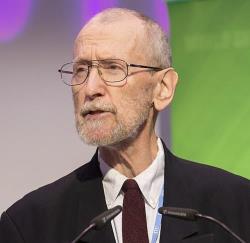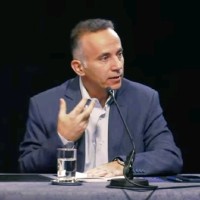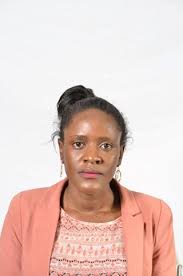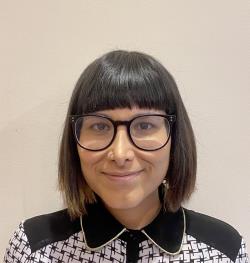UN Civil Society Conference - Side Event: Role of Civil Society Stakeholders in 20 Years of the WSIS Process, towards the Summit of the Future and beyond
WSIS/ITU, IFLA, IT for Change, Globethics, APC, Research ICT Africa, Womenvai, LocNET Initiative, ACEF Africa, WACC
Session 510
In a rapidly evolving digital landscape, the World Summit on the Information Society (WSIS) stands as a strong example of global digital cooperation in action for over two decades, with its WSIS Action Lines withstanding the test of time. They are still relevant today to provide a robust framework for addressing digital challenges and opportunities.
Characterized by its multistakeholder approach, WSIS serves as a model in fostering global cooperation and leveraging information and communication technologies (ICTs) to address contemporary challenges and drive sustainable progress. As part of the WSIS Process annual “Multistakeholder platforms” like the Internet Governance Forum and the WSIS Forum have proven to be very successful in their bottom-up approach regarding the inclusion of Civil Society in issues related to internet governance and digital for development.
To align with the theme of the UN Civil Society Conference on the 'Summit of the Future,' this side event will highlight the principles of multi-stakeholder cooperation from the WSIS Process, which could be integrated into the GDC. It will also discuss the linkages between the WSIS and the Summit of the Future, exploring how the WSIS and its Action Lines can be utilized to translate the principles and outcomes outlined in the Pact for the Future and the GDC into tangible and actionable impact.
With the WSIS+20 review is approaching, this discussion with civil society is critical to shape the future of digital governance process.
This side event is part of the UN Civil Society Conference and will take place in Conference Room 13, Nairobi Nairobi, Kenya at 11:45-13:00 EAT(UTC+3).
Registration: https://indico.un.org/event/1009539/


.jpeg?maxwidth=250)
Josephine Miliza is a passionate advocate for digital inclusion, driven by a passion for fostering collaborative and inclusive approaches to advance comprehensive digital inclusion and equity in Africa. As a pioneer in the community networks movement on the continent, Josephine actively contributes to research, capacity building, and advocacy for policies and regulations on a global, regional, and local scale, all aimed at nurturing inclusive and people-centred digital ecosystems. Currently, Josephine is the Policy and Regulation lead for the Association for Progressive Communications Local Access Networks Initiative. Josephine also co-chairs the Africa Community Networks Summit and is a member of the UN Internet Governance Forum Multistakeholder Advisory Group.

Executive Director of Globethics, international organization, which head office is in Geneva, Switzerland, working for ethical leadership through higher education and global engagement. Prof. Fadi Daou is Laureate of the Elevate Prize 2020 for Global thinkers and change-makers. Daou is a Policy advisor and Professor in geopolitics of religions, inclusive development, and peace. Having lead pioneer projects for countering online extremism, he now leads the engagement of Globethics in ethics of AI and emerging technologies, with the recent publication: Inclusive AI for a better future.

Elizabeth Orembo has joined RIA as a research fellow. She is a tech public policy enthusiast who works at the intersection of technology and human development. Liz has vast experience in Internet governance and stakeholder engagement in Africa. Previously, she was with the University of Oxford’s Global Cybersecurity Capacity Centre as the communications and engagement officer, where she worked with governments and the cybersecurity capacity community to carry out national cybersecurity capacity assessments in different regions. Liz is also active in the Kenyan tech policy space. She is currently part of the board of trustees for KICTANet and has been recognised by CIO East Africa as one of the 100 most influential women in tech in 2021.

Paloma Lara Castro is Public Policy Coordinator at Derechos Digitales. She is a lawyer and candidate for a Master's degree in International Human Rights Law at the University of Buenos Aires (UBA). Her work focuses on processes linked to the universal and inter-American system, research and analysis regarding public policies at regional and global level. She also monitors issues related to gender and technology.

Sarah Macharia is a gender justice and media specialist at the World Association for Christian Communication (WACC), a non-governmental organisation that builds on communication rights in order to promote social justice. She leads the Global Media Monitoring Project (GMMP), a longitudinal research and advocacy initiative for gender equality in and through the news media running since 1995 in more than 100 countries. Sarah also serves as the General Secretary of the Global Alliance on Media and Gender (GAMAG). Sarah holds a PhD in Political Science from York University, Canada.
-
 C1. The role of governments and all stakeholders in the promotion of ICTs for development
C1. The role of governments and all stakeholders in the promotion of ICTs for development
-
 C2. Information and communication infrastructure
C2. Information and communication infrastructure
-
 C3. Access to information and knowledge
C3. Access to information and knowledge
-
 C4. Capacity building
C4. Capacity building
-
 C5. Building confidence and security in use of ICTs
C5. Building confidence and security in use of ICTs
-
 C6. Enabling environment
C6. Enabling environment
-
 C7. ICT applications: benefits in all aspects of life — E-government
C7. ICT applications: benefits in all aspects of life — E-government
-
 C7. ICT applications: benefits in all aspects of life — E-business
C7. ICT applications: benefits in all aspects of life — E-business
-
 C7. ICT applications: benefits in all aspects of life — E-learning
C7. ICT applications: benefits in all aspects of life — E-learning
-
 C7. ICT applications: benefits in all aspects of life — E-health
C7. ICT applications: benefits in all aspects of life — E-health
-
 C7. ICT applications: benefits in all aspects of life — E-employment
C7. ICT applications: benefits in all aspects of life — E-employment
-
 C7. ICT applications: benefits in all aspects of life — E-environment
C7. ICT applications: benefits in all aspects of life — E-environment
-
 C7. ICT applications: benefits in all aspects of life — E-agriculture
C7. ICT applications: benefits in all aspects of life — E-agriculture
-
 C7. ICT applications: benefits in all aspects of life — E-science
C7. ICT applications: benefits in all aspects of life — E-science
-
 C8. Cultural diversity and identity, linguistic diversity and local content
C8. Cultural diversity and identity, linguistic diversity and local content
-
 C9. Media
C9. Media
-
 C10. Ethical dimensions of the Information Society
C10. Ethical dimensions of the Information Society
-
 C11. International and regional cooperation
C11. International and regional cooperation
-
 Goal 1: End poverty in all its forms everywhere
Goal 1: End poverty in all its forms everywhere
-
 Goal 2: End hunger, achieve food security and improved nutrition and promote sustainable agriculture
Goal 2: End hunger, achieve food security and improved nutrition and promote sustainable agriculture
-
 Goal 3: Ensure healthy lives and promote well-being for all
Goal 3: Ensure healthy lives and promote well-being for all
-
 Goal 4: Ensure inclusive and equitable quality education and promote lifelong learning opportunities for all
Goal 4: Ensure inclusive and equitable quality education and promote lifelong learning opportunities for all
-
 Goal 5: Achieve gender equality and empower all women and girls
Goal 5: Achieve gender equality and empower all women and girls
-
 Goal 6: Ensure access to water and sanitation for all
Goal 6: Ensure access to water and sanitation for all
-
 Goal 7: Ensure access to affordable, reliable, sustainable and modern energy for all
Goal 7: Ensure access to affordable, reliable, sustainable and modern energy for all
-
 Goal 8: Promote inclusive and sustainable economic growth, employment and decent work for all
Goal 8: Promote inclusive and sustainable economic growth, employment and decent work for all
-
 Goal 9: Build resilient infrastructure, promote sustainable industrialization and foster innovation
Goal 9: Build resilient infrastructure, promote sustainable industrialization and foster innovation
-
 Goal 10: Reduce inequality within and among countries
Goal 10: Reduce inequality within and among countries
-
 Goal 11: Make cities inclusive, safe, resilient and sustainable
Goal 11: Make cities inclusive, safe, resilient and sustainable
-
 Goal 12: Ensure sustainable consumption and production patterns
Goal 12: Ensure sustainable consumption and production patterns
-
 Goal 13: Take urgent action to combat climate change and its impacts
Goal 13: Take urgent action to combat climate change and its impacts
-
 Goal 14: Conserve and sustainably use the oceans, seas and marine resources
Goal 14: Conserve and sustainably use the oceans, seas and marine resources
-
 Goal 15: Sustainably manage forests, combat desertification, halt and reverse land degradation, halt biodiversity loss
Goal 15: Sustainably manage forests, combat desertification, halt and reverse land degradation, halt biodiversity loss
-
 Goal 16: Promote just, peaceful and inclusive societies
Goal 16: Promote just, peaceful and inclusive societies
-
 Goal 17: Revitalize the global partnership for sustainable development
Goal 17: Revitalize the global partnership for sustainable development